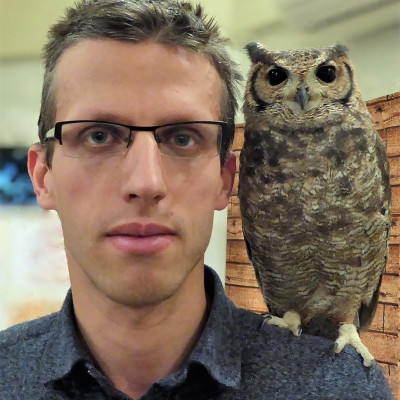Michał B. Paradowski
Institute of Applied Linguistics, University of Warsaw (응용언어학 연구소 바르샤바 대학교)
I am an associate professor at the Institute of Applied Linguistics, University of Warsaw (응용언어학 연구소 바르샤바 대학교), a teacher and translator trainer, and a language teaching consultant for television. My interests include English as a lingua franca, second and third language acquisition research, foreign language teaching, bilingualism and bilingual education, embodied cognition, educational technology, complexity science, and—recently—emergency remote instruction. I have given over 180 invited lectures, seminars and workshops in Europe, America, Africa and Asia, including several repeated visits to Korea. Selected publications in free access: https://uw.academia.edu/paradowski and https://www.researchgate.net/profile/Michal_B_Paradowski2; info in Korean: https://paradowski.ils.uw.edu.pl/dr-michal-b-paradowski-%ea%b5%ad%eb%ac%b8%ec%9d%b4%eb%a0%a5%ec%84%9c/

Sessions
Foreign Language Teachers and Learners in the Face of COVID-19
We present the findings of a global longitudinal study (involving over 6,000 participants from 118 countries) investigating how language teachers and learners as well as linguistics instructors and students were handling the 2020 transition to emergency remote instruction. We will present the meaningful relationships between mutually interacting variables, including sociodemographics (gender, age, education level handled, prior experience with online instruction), circumstances and logistics (economic status of the country, life circumstances, infections among family and friends, level of support), attitudes, behaviors, psychological states, and personality traits (including coping, engagement, and well-being). The significant, sometimes non-trivial findings offer valuable guidance for prevention and training, both during the ongoing pandemic and in possible future shifts to emergency remote teaching and learning.
Teaching English for Lingua Franca Communication: Korean Speakers and Beyond
For most learners and speakers today, English is a language learned predominantly for interaction with other non-native users. We shall discuss how these users adapt and variably alter English ad hoc to suit their communicative purpose, thus preserving their identity without striving to mimic native speakers’ conventions. We will present the results of the first comprehensive analysis of the complete conversation subcomponent of the Vienna-Oxford International Corpus of English, focusing on (a) the possible causes of communication breakdowns in ELF communication, and (b) strategies employed by speakers in order to both prevent and overcome such failures. We categorize and show the distribution of the sources of breakdowns as well as the compensatory strategies. These considerations will steer us towards a discussion of the implications for language pedagogy, taking as an example learners who are L1 speakers of Korean, and conclude with recommendations for the translation and interpreting professions.
Teaching English for Special Purposes with (Self-Developed) Corpora
Language for special purposes can pose a challenge on multiple levels. This workshop will introduce the potential, methods, and ease of applying both self-compiled and already-available (collections of) texts and concordancing tools in the language classroom. We will show how corpora can be easily and quickly analyzed with freely available software for in-class data-driven learning and informed materials development that can complement the language curriculum as well as self- and remedial teaching. Drawing on concrete examples from two genres, namely legal documents and cookbooks, we shall see how such tools can reveal a plethora of information about the lexis, grammar, information structure, and cultural associations in the genres investigated, which often differ from the conventions and principles of “general English." The concrete examples from culinary and legal English will demonstrate the pertinence and ecological validity of corpus-driven learning that can go far beyond the relevance of the coursebook.